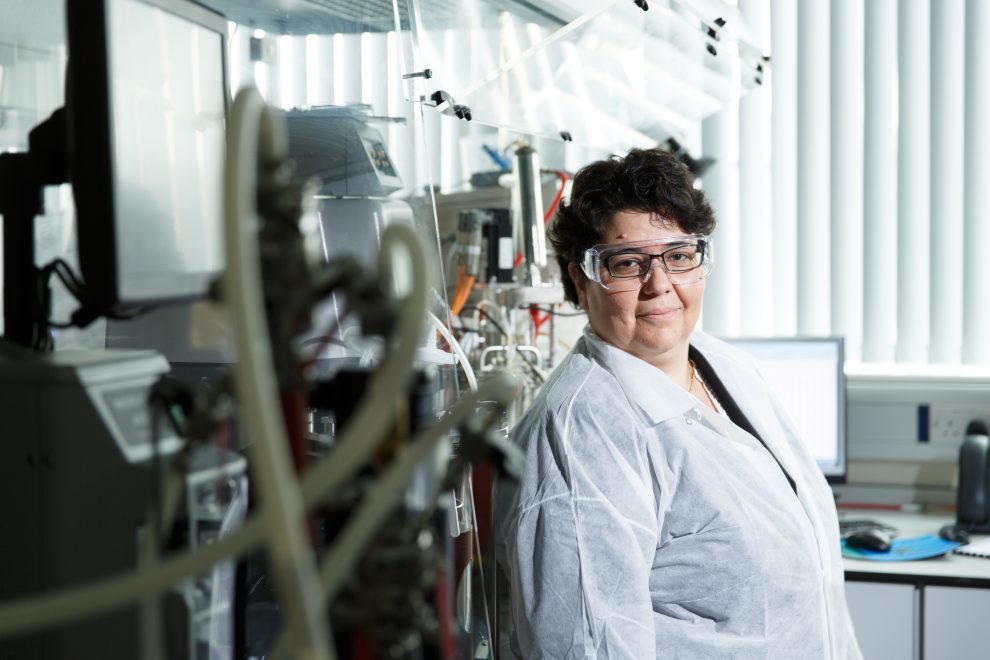BIOTECHNOLOGIES developed at the University of South Wales that can support a circular economy by recovering waste and producing clean energy and fertilisers are one of six innovations proposed by the Key Cities Innovation Network (KCIN) in “Civic Partners in Net Zero”, a collection of peer-reviewed studies detailing innovative ways in which universities are working with their local places to achieve net zero targets.
Biotechnologies developed at the University of South Wales that can support a circular economy by recovering waste and producing clean energy and fertilisers are one of six innovations proposed by the Key Cities Innovation Network (KCIN) in “Civic Partners in Net Zero”, a collection of peer-reviewed studies detailing innovative ways in which universities are working with their local places to achieve net zero targets.
KCIN coordinates universities associated with the cross-party group of 27 Key Cities across England and Wales – including Newport – which is the largest grouping of urban authorities in the UK outside London. The studies, selected not only for local relevance but also their potential for replicating in other places, range from tech innovation and policy development to engaging local communities with climate science.
The USW research – funded by the European Regional Development Fund and the UK Government and disseminated to local authorities and communities with the support of the Welsh Government – focuses on the deployment of anaerobic digestion technologies in recycling municipal food waste with the potential of meeting a substantial proportion of domestic gas demand.
The other innovations featured in “Civic Partners in Net Zero” are:
- Dynacov: pioneering new technology to enable recharging of electric vehicles (notably heavy goods and public service vehicles which will still be required in car-free cities) by dynamic recharging while driving on power-enabled public roads. (Coventry University and Coventry City Council)
- The Morecambe Bay Curriculum: climate scientists and researchers working with educators in schools and colleges to weave sustainability and place into everyday teaching across all phases of education, in a collaboration inspired by the development of Eden Project Morecambe. (Lancaster University with Lancaster and Morecambe College)
- Connecting policy and science for net zero carbon construction: trialling local planning policies to achieve low carbon outcomes that go far beyond national building regulations. (University of Bath and Bath & North East Somerset Council)
- Ecological Citizens and Large Housing Estates of the Future: empowering communities and local industry to drive the net zero transition. (Wrexham University with ClwydAlyn Housing Association and local partners)
- Stories in the Dust: researchers and a theatre company combine to engage primary school audiences emotionally with climate science. (University of Southampton and Stories in the Dust Theatre Company)
Professor Sandra Esteves, Professor in Bioprocess Technology for Resource Recovery: Energy and Materials at the University of South Wales, said: “‘Biotechnologies will continue to deliver resource recovery and contribute to net zero, circular economy, and green growth.
“These can deliver sustainable fuels, chemicals, polymers and feed using organic wastes and inorganic gases within urban and rural settings, contribute to the sustainable treatment and recycling of organic wastes and carbon, and contribute to renewable energy storage.
“Microbial-based processes can be delivered at low parasitic energy, low temperature, low pressure and with minimal chemical usage, all contributing to reduced environmental impacts.
“The paper summarises some of the impact of the research delivered as well as current developments. Further R&D, scaling-up, integration and demonstration are essential to support full-scale deployment and commercialisation of the new and improved biotechnologies.”















